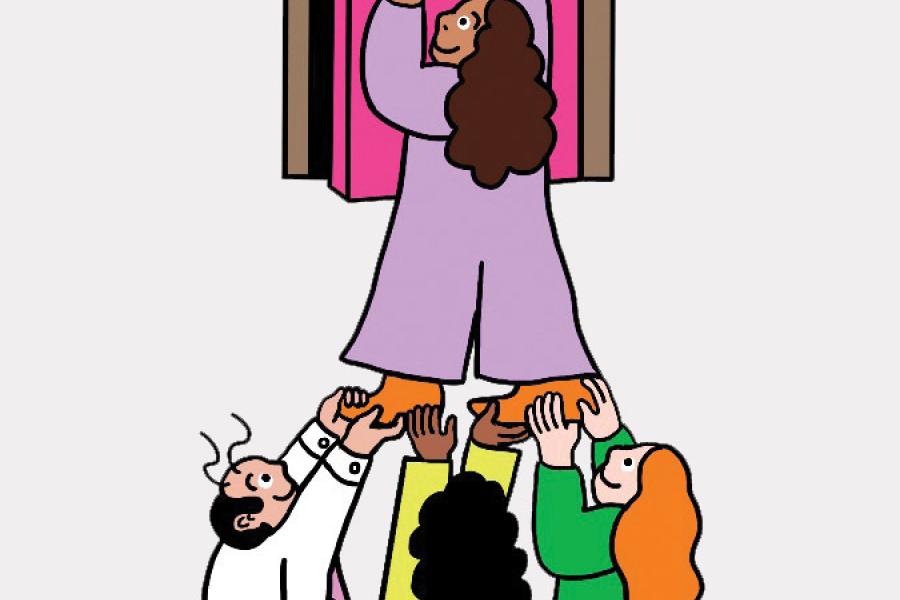When Lionel Foster, A&S '02, learned that he could share his knowledge and experience with students from his alma mater, he jumped at the chance. After all, mentors had guided Foster along each rung of his career, enabling him to transition from positions in communications to law school and, later, to his current role as an investor with a venture capital firm.
"So many people have helped me," says Foster, who grew up in Baltimore and now lives in Washington, D.C. "I was taught to pay it forward."
Foster is one of many alumni mentoring undergraduate and graduate students at Johns Hopkins University, through both formal and informal opportunities offered by Integrative Learning and Life Design, in partnership with the Alumni Association. "Our goal is to connect every student at Hopkins with a meaningful mentor relationship," explains Casey Miller, the executive director of mentoring initiatives with Hopkins Connect.
Alumni mentoring opportunities range from Mentoring Meetups, where JHU graduates convene virtually with students who want to learn from their areas of expertise, to Mentors in Residence, where alumni meet face-to-face with students at the Imagine Center on the Homewood campus. Alumni can sign up for these and other experiences through OneHop Mentoring, a digital platform that lets them indicate their interests and availability and, ultimately, start making a difference.
"At the core of mentoring is getting information and guidance from someone who is where you want to go," says Clifton Shambry Jr., the associate director of life design for diversity and inclusion, who works with the Black Male Initiative mentoring program managed by the Center for Diversity and Inclusion–Multicultural Affairs. Currently, 47 students take part in BMI, which involves both peer-to-peer mentoring, where older students support first-year students, and mentoring from alumni who meet with students and participate in panel discussions and breakout sessions. At a recent panel discussion with four alumni, including Foster, who participates in BMI, "the questions from students kept coming, and the conversation was so great that it went far beyond the designated time period," Shambry says.
Roughly 60 first-generation and limited-income students take part in another mentoring program known as FLI Proud. Here, students seek advice from mentors on topics as varied as courses of study and career tracks to money and lifestyle. With this program and others, "we want students to see and understand that there are a variety of pathways available to a particular career, instead of a singular track, and that even if they feel locked into one career trajectory, there are really several options available," Miller says. "Sometimes, all it takes is one meaningful conversation with the right mentor."
Posted in Alumni
Tagged alumni, integrative learning and life design, mentoring








